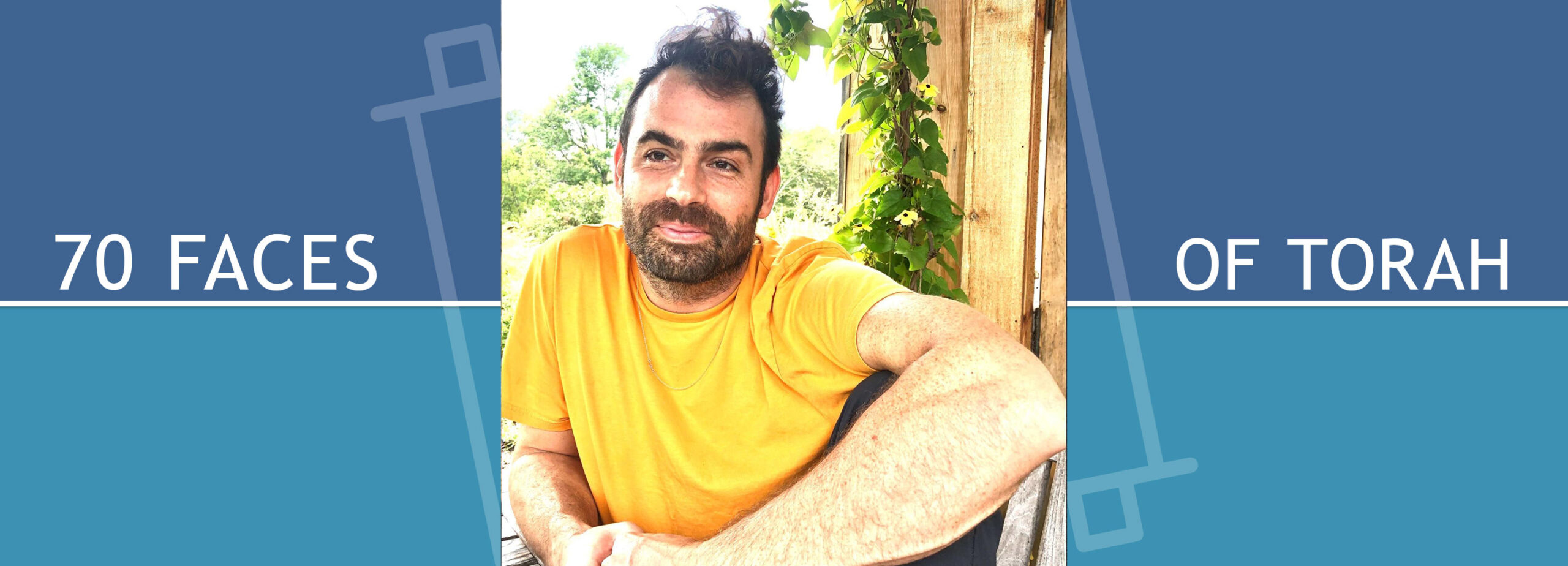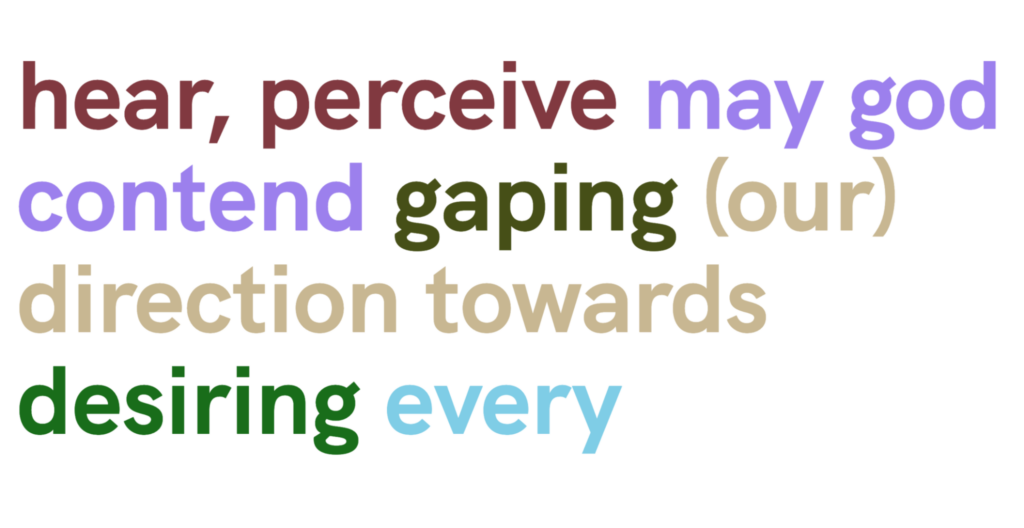Jewish learning Listen, Drop The Story

Parashat Shemini (Leviticus 9:1-11:47)
Last spring I taught a class about creative practice and Jewish practice. The last session in the series was about Shema—about the ways in which our own creativity stems from our ability to listen deeply and direct attention. The class’s working definition of listening was heavily influenced by Jenny Odell’s How to Do Nothing, in which she lifts up Franco Berardi’s distinction between ‘connectivity’ and ‘sensitivity.’
Connectivity is the rapid circulation of information among compatible units—an example would be an article racking up a bunch of shares very quickly and unthinkingly by like-minded people on Facebook…
Sensitivity, in contrast, involves a difficult, awkward, ambiguous encounter between two differently shaped bodies that are themselves ambiguous—and this meeting, this sensing, requires and takes place in time. Not only that, due to the effort of sensing, the two entities might come away from the encounter a bit different than they went in.
I had this grand plan that the class would end with the group retranslating the Shema, an exercise I borrowed from Rabbi Jordan Schuster. The group was mostly unfamiliar with biblical Hebrew, so I created a spreadsheet with possible translations of each word of the Shema as an aid.
Moments before I explained the final assignment, my friend Daniel Luxemburg (a Marxist materialist, software engineer, and rabbi’s son) raised his virtual hand, and confessed to having read ahead in the source sheet. He then shared this link with the class: https://shema-permutations.glitch.me

Daniel died last summer, about eight months ago now.
~
In Parashat Shemini (Eighth), we read about Nadab and Abihu, Aaron’s sons who offer strange fire to Hashem, and are consumed by fire (Leviticus 10:1-2).
וַיִּקְחוּ בְנֵי־אַהֲרֹן נָדָב וַאֲבִיהוּא אִישׁ מַחְתָּתוֹ וַיִּתְּנוּ בָהֵן אֵשׁ וַיָּשִׂימוּ עָלֶיהָ קְטֹרֶת וַיַּקְרִיבוּ לִפְנֵי יְהֹוָה אֵשׁ זָרָה אֲשֶׁר לֹא צִוָּה אֹתָם׃ וַתֵּצֵא אֵשׁ מִלִּפְנֵי יְהֹוָה וַתֹּאכַל אוֹתָם וַיָּמֻתוּ לִפְנֵי יְהֹוָה׃
And Aaron’s sons Nadav and Abihu each took his fire pan, put fire in it, and placed incense upon it; and they put it near Hashem’s face, strange fire which had not been commanded them. And a fire went out from Hashem’s face, and ate them, and they died before Hashem’s face.
At the moment, I can’t think of anything more beautiful or valuable to the world than strange fire—mystery, small reactions that exist beyond category, that cast strange light and make the world incomparable.
Daniel was a purveyor of strange fire. He also strove, like Nadab and Abihu, to be near Hashem through experimentation—through recombination of received forms. He was an engineer and social theorist, who praised and practiced intimacy by investigating and refashioning.
So there are a number of reasons why this Parashat Shemini reminded me of my friend Daniel.
But the initial reason I called Daniel to mind in trying to reflect on this Parashah, is because I was looking for a ballast against the Jewish (read, rabbinical) habit of meaning-making.
As you can imagine, commentary on these Leviticus verses circle primarily around the exact nature of Nadab and Abihu’s transgression. (Chizkuni, for example, painstakingly locates the boys’ transgression in their placement of incense.) There’s also some commentary that understands Nadab and Abihu’s death as a signal of accepted sacrifice — a welcomed and zealous desire to be close to Hashem that is rewarded with consummation. Rabbi Shoshana Friedman, for example, glosses Rabbi Nachman of Bratslav here, writing, God accepts [Nadab and Abihu’s] offering: their full selves, their devotion and their lives.
In the verse immediately following Nadab and Abihu’s deaths, Moses too offers a derash —a story that seeks to sublimate the horror of loss into a particular kind of religious devotion (Leviticus 10:3).
וַיֹּאמֶר מֹשֶׁה אֶל־אַהֲרֹן הוּא אֲשֶׁר־דִּבֶּר יְהֹוָה לֵאמֹר בִּקְרֹבַי אֶקָּדֵשׁ וְעַל־פְּנֵי כׇל־הָעָם אֶכָּבֵד וַיִּדֹּם אַהֲרֹן׃
And Moses said to Aaron, This is what Hashem meant by saying:
Through those near to Me I will become holy,
And I will become heavy on the faces of all the people.
And Aaron was silent.
The desire to make the tragic mean is, of course, human. Meaning, stories, are a way for us to orient and have power (or the illusion of power) in our own lives or the lives of others. But on the occasion of Parashat Shemini, I’d like to make a plug for the value of putting down our stories.
My friend Daniel was no stranger to abstract thought. He was a lover of, and incredibly facile with symbols and paradigms (stories). But he also had this really lovely habit of holding up the theoretical to the material. Once, at a party, someone (ok it was me) was mouthing off about Levinas, about the beauty of Levinas’s philosophy, grounded in the mystery of observing the faces of others—and Daniel immediately raised the exception of prosopagnosia—face blindness, a condition characterized by the inability to recognize faces.
Daniel wasn’t a naysayer. He was just committed to careful inquiry, and unafraid of (or brave enough to face) the disorientation that follows when our stories don’t hold.
Sometimes our stories collapse. This is part of what they’re for.
In the end, in reflecting on Daniel’s life, I find Aaron’s derash most compelling. In the face of his own horror, beside Moses’s devotional proclamation, Aaron strips from himself the armor of meaning.
The materiality and sensitivity of his silence cry out to us across generations.
ז״ל
Please provide feedback to the author here.
David Mahfouda (he/him) is a Rabbinical Student and Teaching Fellow at Hebrew College, and recent Student Rabbi at Congregation Or HaTzafon in Fairbanks, Alaska. Prior to attending Hebrew College, David was an artist and curator at the Proteus Gowanus Gallery in Brooklyn, where he co-founded the Fixers Collective—an anarchist repair community that gathered weekly to fix broken things. David was also the cofounder and CEO of Bandwagon, an environmental tech company that organized shared taxi rides from NYC airports. David really loves gathering (people), and practice (all kinds, spiritual, Jewish, athletic, artistic, etc.), and believes that his artistic and technical inclinations stem from deep-rooted Jewish values around interdependence and redemption. In addition to rabbinical school, David loves cooking, hiking, and singing—and he’s excited to be a contributor to 70 Faces of Torah.

